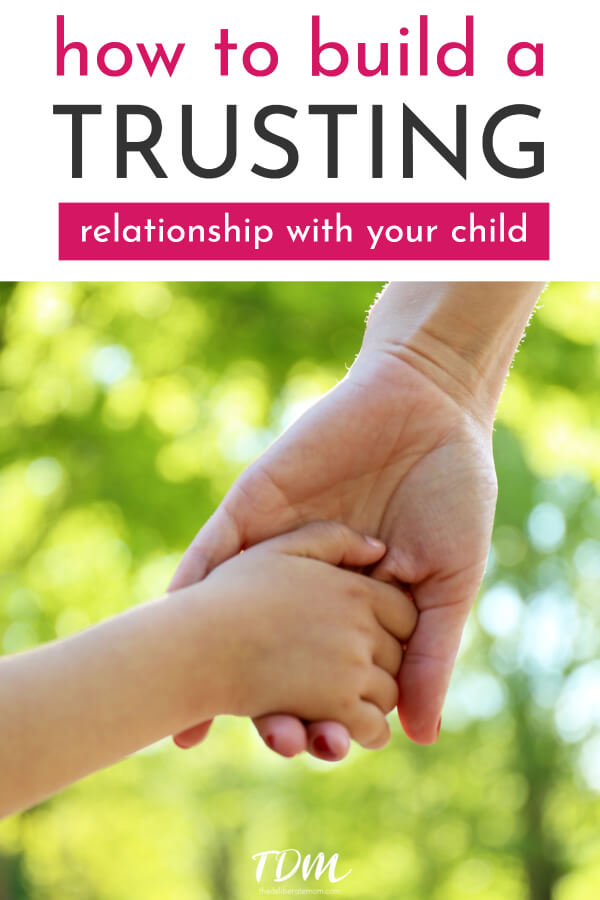Introduction
Trust is the foundation of any healthy relationship, and parenting is no exception. As parents, one of our most important tasks is to build and maintain trust with our children. Trust forms the basis for open communication, emotional security, and mutual respect. But how do you establish trust with a young child, and how do you maintain it as they grow older? This article will explore the essential strategies for sotto bosco.info/ at every stage of your child’s development.
Why Trust is Important in Parenting
Building trust with your child isn’t just about making sure they believe you when you say, “I’ll be there for you” or “Everything will be okay.” It’s about creating a relationship where your child feels safe, heard, and supported. Trust lays the groundwork for a strong parent-child bond and enables your child to develop a sense of security that they will carry with them throughout life. When children trust their parents, they are more likely to:
- Be open about their feelings, thoughts, and concerns.
- Make good decisions and have better emotional regulation.
- Exhibit healthy relationships with others.
- Feel secure in knowing their parents will guide and support them through challenges.
What Does Building Trust Look Like?
Building trust with your child is an ongoing process that involves consistent actions. It’s about following through on promises, being emotionally available, and offering unwavering support when needed. But what does it actually look like in action? Here are some key behaviors that demonstrate trust-building:
- Being reliable and consistent: Keeping promises and maintaining routines.
- Being emotionally available: Being present when your child needs you, both physically and emotionally.
- Respecting your child’s feelings: Acknowledging their emotions and taking them seriously, regardless of how small they may seem.
- Being transparent and honest: Letting your child know what’s going on, without unnecessary secrecy.
Trust-building requires patience, consistency, and a willingness to be vulnerable at times.
The Role of Consistency in Building Trust
Children thrive on routine and consistency. When you are consistent with your actions and behavior, your child learns that they can rely on you. Whether it’s through predictable bedtime routines, consistent responses to behaviors, or following through on promises, consistency is key to building trust.
- Consistency in words and actions: Children need to know that what you say matches what you do. If you promise something, follow through on it.
- Predictable consequences: If rules are broken, having consistent consequences helps kids understand the importance of respecting boundaries.
- Routine and structure: Establishing routines for daily activities (e.g., meals, chores, bedtime) gives your child a sense of security and trust in the environment.
Consistency shows your child that they can count on you, which is a fundamental aspect of trust.
Being Honest with Your Child
Honesty is the cornerstone of trust. Being truthful with your child, even when the truth is difficult, teaches them that they can rely on you for accurate information and support. However, honesty doesn’t mean overwhelming them with adult problems or information they aren’t ready to hear. It means being transparent in an age-appropriate way.
- Honesty about feelings: Share your emotions with your child in an open, age-appropriate manner.
- Honesty about limits: If you can’t do something, explain why, rather than making promises you can’t keep.
- Honesty about mistakes: If you mess up as a parent, admit it. Apologizing and explaining what happened shows that trust is a two-way street.
By being honest, you model important values like integrity, accountability, and transparency.
Active Listening and Empathy
Listening is one of the most powerful ways to build trust with your child. Active listening means really tuning in to what your child is saying, understanding their feelings, and responding in a way that shows you care. Empathy goes hand in hand with active listening—it’s about validating your child’s emotions, even if you don’t always agree with their perspective.
- Give full attention: Put down your phone or stop what you’re doing to show your child that they matter.
- Acknowledge feelings: Statements like “I can see you’re upset” or “That sounds frustrating” help children feel understood.
- Ask open-ended questions: Encourage your child to share their thoughts by asking questions that invite more than just a “yes” or “no” answer.
When children feel heard and understood, it fosters trust and makes them more likely to open up in the future.
Encouraging Independence and Responsibility
Trust is not just about providing support—it’s also about empowering your child to make their own decisions and take responsibility for their actions. Giving your child age-appropriate choices helps them develop a sense of autonomy and shows them that you trust them to handle responsibility.
- Give choices: Allow your child to choose between options when possible, such as picking their clothes or deciding which activity to do.
- Teach responsibility: Assign age-appropriate chores or tasks, and hold your child accountable for completing them.
- Support decision-making: When your child makes a decision, whether good or bad, offer guidance and encouragement, rather than judgment.
By allowing your child to take on responsibility, you are demonstrating trust in their abilities.
Setting and Respecting Boundaries
Boundaries are essential in maintaining trust. When you set boundaries with your child, it shows them that you care enough to guide them and keep them safe. It’s important to respect your child’s boundaries as well, acknowledging their needs for personal space, privacy, and autonomy.
- Set clear expectations: Be clear about what behavior is acceptable and what isn’t.
- Be flexible: As children grow, their needs and boundaries will change. Respect and adjust accordingly.
- Allow for independence: Give your child room to explore and learn on their own while maintaining appropriate boundaries.
Respecting each other’s boundaries helps create mutual trust and a positive dynamic between parent and child.
Creating a Safe Emotional Environment
An emotionally safe environment is one where your child feels free to express their feelings without fear of judgment or rejection. By creating a safe emotional space, your child can trust you with their vulnerabilities, which deepens the emotional bond between you.
- Encourage open dialogue: Let your child know that their thoughts and feelings are welcome and important.
- Validate their emotions: Even if their feelings seem trivial, acknowledge them. This shows respect for their emotional experiences.
- Respond with empathy: Offer comfort and understanding when your child is upset, and encourage them to work through their feelings.
Creating an emotionally safe space is crucial in building trust that lasts.
Trust in Action: How to Handle Mistakes
No one is perfect, and mistakes are inevitable. When you or your child make a mistake, handling it with transparency, humility, and compassion can strengthen trust. Show your child that mistakes are opportunities for growth and learning.
- Admit when you’re wrong: If you make a mistake, apologize and explain how you’ll do better next time.
- Encourage problem-solving: Teach your child how to think critically about mistakes and how to make better choices in the future.
- Model accountability: Show your child that taking responsibility for mistakes is a sign of maturity and growth.
When you handle mistakes with grace and transparency, you reinforce the value of trust in your relationship.
Building Trust with Toddlers (1-3 years)
At this age, trust-building involves establishing a predictable routine and being consistent with both positive reinforcement and boundaries. Toddlers need to feel secure in knowing their parents are reliable and emotionally available.
- Be responsive to needs: Always try to meet your toddler’s basic needs, whether it’s for food, comfort, or attention.
- Follow through on promises: If you say something will happen, make sure it does. For example, if you promise a favorite activity, follow through.
Building Trust with Preschoolers (3-5 years)
Preschoolers are learning about independence but still need strong emotional security. At this stage, trust-building revolves around consistent routines and communication.
- Provide reassurance: Preschoolers may fear separation or new situations, so be there to reassure them.
- Encourage self-expression: Let them share their thoughts and feelings, and listen actively.
Building Trust with School-Age Children (5-12 years)
School-age children are better able to understand and process emotions, and trust-building requires consistent reinforcement of values and emotional support.
- Allow them to make small decisions: This helps reinforce their sense of responsibility.
- Praise effort: Acknowledge their hard work, whether it’s in school or home tasks.
Building Trust with Teens (13-18 years)
Teens are pushing for more independence, and building trust at this stage involves showing respect for their autonomy while maintaining guidance.
- Offer privacy: Give your teen the space they need but remain available for conversation when necessary.
- Involve them in decisions: Let them contribute to discussions about family rules or plans.
Common Challenges in Building Trust
Trust-building isn’t always smooth sailing. Common challenges include:
- Inconsistency: Failing to follow through on promises or rules can break trust.
- Miscommunication: If parents aren’t transparent or open, children may feel alienated.
How to Repair Trust When It’s Broken
If trust is broken, the key to repair is acknowledgment, apologies, and action. Take responsibility, address the issue openly, and take steps to rebuild trust.
- Apologize sincerely: Acknowledge the mistake without deflecting blame.
- Commit to change: Take tangible actions to demonstrate that trust will not be broken again.
Conclusion
Building trust with your child is one of the most important things you can do as a parent. By being consistent, honest, empathetic, and supportive, you create a foundation of trust that will help your child feel safe and secure throughout their development. As your child grows, so will your relationship, and trust will be the glue that holds it all together.





